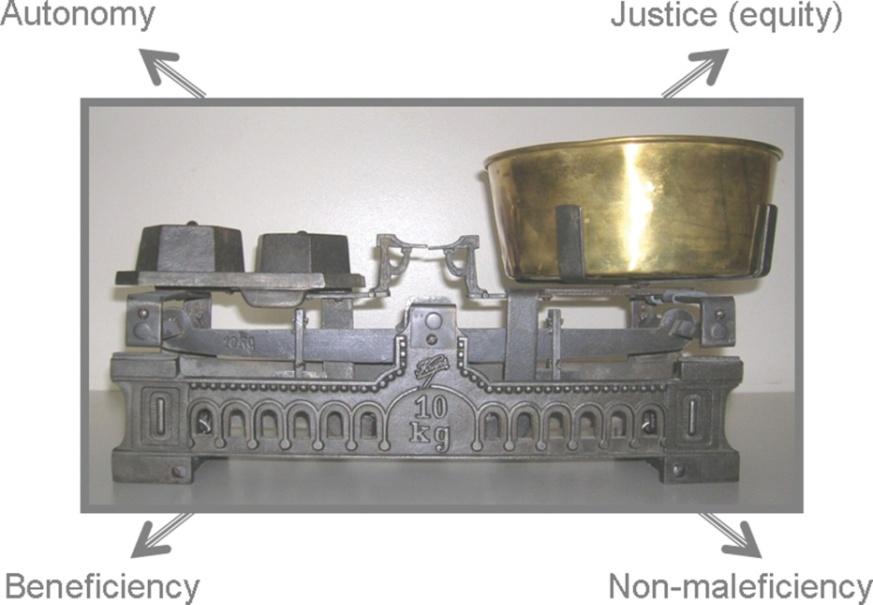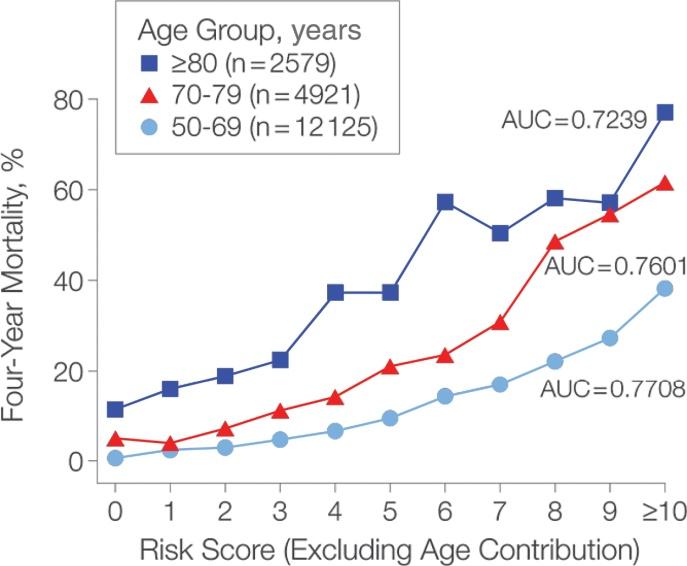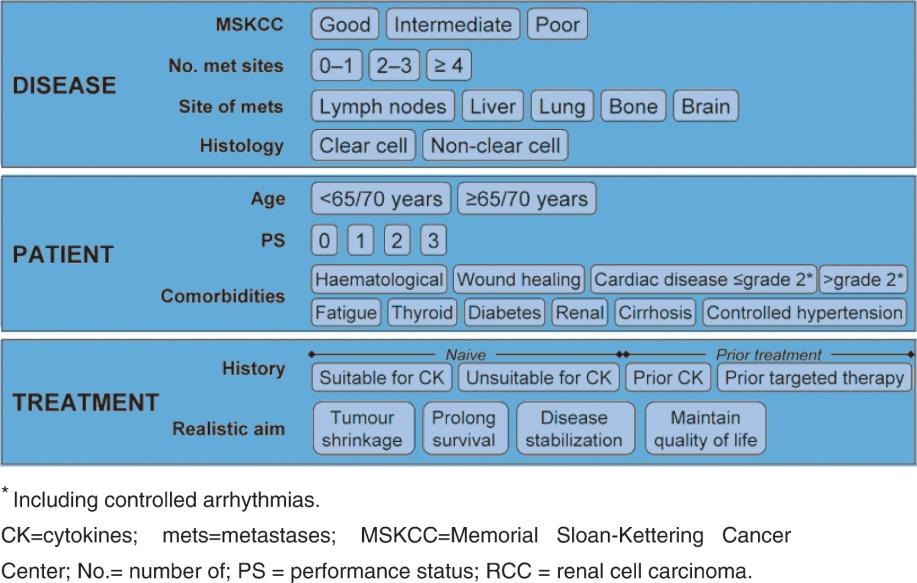
3 minute read
Further Reading
Treatment of Metastatic MIBC
Metastatic BC is associated with an overall poor prognosis. It might be approached using the Bajorin classification based on performance status (PS), location of the metastases and haemoglobin level. The median survival is around 36 months (Karnofsky PS > 80, no visceral metastases, normal haemoglobin level) compared with 12 months if PS < 80, visceral metastases and anaemia are present.
Advertisement
The standard regimen is cisplatin-based polychemotherapy (either MVAC, DD MVAC or GC). The response rate is around 50%, the complete response rate around 20%, and the overall median survival around 14 months. The main prerequisite is an adequate renal function, either estimated using the MDR formula, or a real measured renal clearance.
There are limited data on senior adults as they are under-represented in clinical trials. Furthermore, they often have a decreased bone marrow reserve. At least 50% are unfit for cisplatin either due to poor renal function (creatinine clearance < 60 ml/min) and/or an ECOG PS < 2. In cases where one of these two criteria is met, the options are limited to carboplatin-based combination regimens (such as carboplatin –gemcitabine). When both criteria are met, based on the very poor outcome, a detailed discussion is mandatory as best supportive care/palliative care might often represent the best treatment option.
Relapse after first-line treatment is associated with a median survival between 5 to 12 months, depending on several risk factors. In theory if the relapse is more than 6-12 months after the first regimen, another platinum-based regimen is standard of care, if feasible. This will be the exception in senior adults. Provided the patient has a PS 0-1, a vinflunine-based regimen might be discussed. Otherwise best supportive/palliative care will be the standard.
• Audisio RA, Pope D, Ramesh HS, et al. Shall we operate? Preoperative assessment in elderly cancer patients (PACE) can help: a SIOG surgical task force prospective study. Crit Rev Oncol Hematol 2008; 65: 156–163. • Babjuk M, Bohle A, Burger M, et al. Guidelines on non muscle –invasive blalder cancer. EAU guidelines 2015. Available at https://uroweb.org/guideline/non-muscleinvasive-bladder-cancer/ (7 June 2016, date last accessed). • Bellmunt J, Fougeray R, Rosenberg JE, et al. Long-term survival results of a randomized phase III trial of vinflunine plus best supportive care versus best supportive care alone in advanced urothelial carcinoma patients after failure of platinum-based chemotherapy. Ann Oncol 2013; 24: 1466-1472. • Bellmunt J, Orsola A, Leow JJ, et al. Bladder cancer: ESMO Clinical Practice
Guidelines for diagnosis, treatment and follow-up. Ann Oncol. 2014; 25 (Suppl 3): iii40-iii48.
• De Santis M, Bellmunt J, Mead G, et al. Randomized phase II/III trial assessing gemcitabine/carboplatin and methotrexate/carboplatin/vinblastine in patients with advanced urothelial cancer who are unfit for cisplatin-based chemotherapy: EORTC study 30986. J Clin Oncol 2012; 30: 191-199. • Fairey A, Chetner M, Metcalfe J, et al. Associations among age, comorbidity and clinical outcomes after radical cystectomy: results from the Alberta Urology Institute radical cystectomy database. J Urol 2008; 180:128-134. • Goossens-Laan CA, Leliveld AM, Verhoeven RH, et al. Effects of age and comorbidity on treatment and survival of patients with muscle-invasive bladder cancer Int J
Cancer 2014; 135: 905-912. • Kenis C, Decoster L, Van Puyvelde K, et al. Performance of two geriatric screening tools in older patients with cancer J Clin Oncol. 2014; 32:19-26. • Mak RH, Hunt D, Shipley WU, et al. Long-term outcomes in patients with muscleinvasive bladder cancer after selective bladder-preserving combined-modality therapy: a pooled analysis of Radiation Therapy Oncology Group protocols 8802, 8903, 9506, 9706, 9906, and 0233. J Clin Oncol 2014; 32: 3801-3809. • Ploussard G, Daneshmand S, Efstathiou JA, et al. Critical analysis of bladder sparing with trimodal therapy in muscle-invasive bladder cancer: a systematic review. Eur
Urol 2014; 66: 120-137. • Sonpavde G, Pond GR, Fougeray R, et al. Time from prior chemotherapy enhances prognostic risk grouping in the second-line setting of advanced urothelial carcinoma: a retrospective analysis of pooled, prospective phase 2 trials. Eur Urol 2013; 63: 717723. • Witjes JA, Comperat E, Cowan NC, et al. Guidelines on muscle-invasive and metastatic bladder cancer. EAU guidelines 2015. Available at https://uroweb.org/guideline/bladder-cancer-muscle-invasive-and-metastatic/ (7
June 2016, date last accessed). • Zakaria AS, Santos F, Dragomir A, et al. Postoperative mortality and complications after radical cystectomy for bladder cancer in Quebec: A population-based analysis during the years 2000-2009. Can Urol Assoc J 2014; 8: 259-267.





